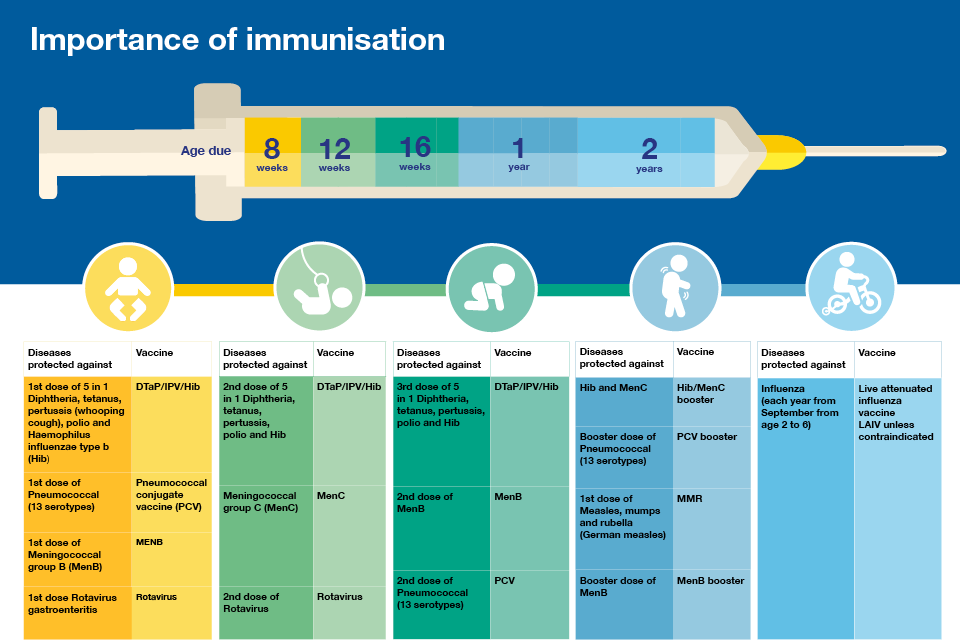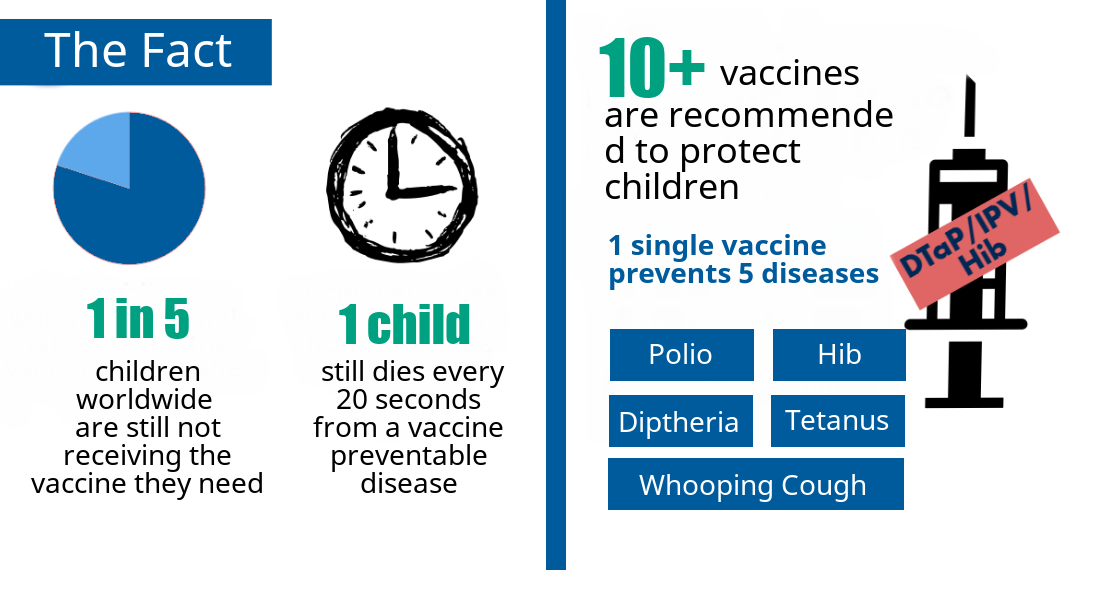
World Children’s Day: Important Vaccinations For Your New Born
Many people are becoming opposed to the idea of vaccinating their children these days. They feel that exposing a child to germs is killing the purpose of protecting them. Why give them the disease in order to save them from it? The thing is, vaccines are given in order to make sure that the immature immune system of a baby is better able to fight off various diseases that may strike at any given point. In short, vaccination ensures children’s health.
According to Recommended Immunization for Persons aged 0-6 years, children can get about 24 vaccinations till 2 years of age for protection against 14 kinds of diseases. Since the little one’s stomach contains fewer acids, the bacteria they ingest can quickly multiply and lead to devastating effects.

Before being born, the baby is completely safe in the mother’s womb. This is because the environment is sterile and safe from the entry of any kind of germs or infection. It is the job of a mother’s immune system to keep the mother healthy and protect the fetus. Hence, the baby has no capability of fighting any virus on its own. Once they have been born, their system slowly learns to fight off germs and diseases. With time, the baby’s immune system gets strong enough to fight foreign invaders, and the need for vaccination ends. But before that, the baby needs protection in the form of vaccination.
RELATED: Prenatal Care: Gap Between Babies Is Essential For Mother And Baby’s Health
What is the Vaccine Made of?
Vaccinations contain a very tiny amount of the germ that is injected into the baby’s system. This way the immature immune system learns to fight that small germ and overcome it completely. Therefore, if the actual disease does strike, the child would not only be able to fight off the problem but beat it without much effort.
You may have noticed that only very young children are given vaccinations. This is because as they grow, their immune system grows with them and fighting off different kinds of foreign threats get easier.
There are different kinds and doses prescribed for children of different ages, starting from the birth. For instance, the Hepatitis B vaccine is injected immediately after birth. In the following 18 months after that, other vaccines are given.
RELATED: When Expecting, What To Expect
Are all Vaccines Important?
Should you get them all or only some are enough? After all, many of them are repeated 3-4 times. The thing is, vaccines are repeated because these diseases are more likely to happen at any stage of life. Once your child’s immune system learns to fight in the beginning, it will be able to fight diseases later too.

One more reason why vaccinations are important is that they don’t just keep your baby healthy and protected, but also make sure that others around the child are also safe. Why? Because many of the diseases are contagious and others could contract them too.
Reviewed by Dr. Nida
Doctor’s note:
- Vaccines should only be given on doctor’ advice
- Live vaccines (that use a weakened form of the germ that causes disease) should not be given during pregnancy or to children with weak immune systems, including patients of solid tumor, chemotherapy or HIV positive
- Children with an egg allergy or a history of asthma in the last 12 months should be reviewed by a doctor before vaccination
- Live vaccines are not recommended if a patient has taken influenza anti-viral medication in the past 48 hrs.
- Certain vaccines can be delayed if the child is diagnosed with active tuberculosis
- History of severe allergic reaction or prolonged seizure (fits), from a previous vaccine
- Side-effects of the vaccines may include severe allergic reaction or prolonged seizure (fits)

